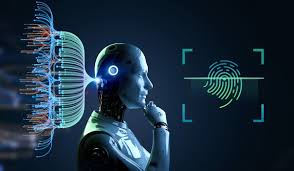As the global tech community gears up for AI Appreciation Day on July 16th, industry leaders and ethicists are voicing both excitement and caution about artificial intelligence’s trajectory. While AI’s potential to transform industries and solve complex problems is undeniable, the ethical considerations surrounding its use are coming into sharp focus.
As AI technologies continue to shape various sectors, from healthcare to public policy, the ethical implications remain a critical topic of discussion among industry leaders. At the forefront of these conversations is the annual Leaders In AI Summit in San Francisco, where experts dissect the integration of AI within our daily lives and the necessary ethical frameworks that should guide its development and use.
AI’s Expanding Reach
AI is no longer confined to research labs. It’s finding applications in diverse fields, from healthcare and finance to transportation and entertainment. Machine learning algorithms are improving medical diagnoses, optimizing financial trading, powering self-driving cars, and even creating art.
“AI is poised to become a ubiquitous tool,” says Dr. Eleanor Vance, a computer scientist at MIT. “But with such power comes a responsibility to ensure its development and deployment are guided by ethical principles.”
Ethical Concerns Loom Large
One of the most pressing concerns is bias in AI systems. If the data used to train algorithms is skewed, the resulting AI can perpetuate or even amplify existing inequalities. This has been observed in facial recognition technology, where some systems have demonstrated higher error rates for individuals with darker skin tones.
In the broader context, leaders are not just reacting to current trends but actively shaping the future of AI governance. The European Union’s pioneering efforts, such as the AI Act, aim to ensure that AI systems respect fundamental rights and are safe for use across member states. This includes comprehensive auditing systems to monitor compliance, highlighting a proactive approach to ethical AI use.
Job displacement is another worry. As AI-powered automation becomes more sophisticated, there are fears that it could lead to widespread job losses, particularly in sectors like manufacturing and customer service.
Privacy is also a major issue. AI systems often rely on vast amounts of personal data to function effectively. This raises questions about how that data is collected, stored, and used.
Industry Leaders Weigh In
Tech giants like Google and Microsoft are investing heavily in AI research and development. They acknowledge the ethical challenges and are taking steps to address them. For example, Google has published AI Principles that outline its commitment to developing AI that is socially beneficial and avoids creating or reinforcing unfair bias.
Microsoft CEO Satya Nadella has called for a “human-centered approach” to AI, emphasizing the importance of designing systems that augment human capabilities rather than replace them.
The Role of AI in Modern Governance and Healthcare
The AI Summit spotlighted the role of AI in enhancing operational efficiency and patient outcomes in healthcare. Discussions emphasized the importance of establishing robust ethical guidelines to manage AI’s transformative potential responsibly. Experts highlighted the delicate balance between innovation and privacy, especially concerning biometric technologies and their deployment in both security measures and everyday applications like smartphone security.
Educational Shifts for an AI-Enhanced Future
The necessity for continuous education and skill adaptation was another key theme. As AI continues to alter the landscape of work and social interactions, there is a growing need for current and future generations to adapt through enhanced educational initiatives that focus on the new dynamics introduced by AI.
AI Appreciation Day: A Time for Reflection
AI Appreciation Day offers an opportunity to celebrate the progress that has been made in the field of artificial intelligence. But it’s also a time to reflect on the ethical implications of this technology and to have a candid conversation about how to ensure AI is used for good.
As AI continues to evolve at a rapid pace, it’s crucial that we engage in a thoughtful and inclusive dialogue about its potential and its pitfalls. The choices we make today will shape the future of AI and its impact on society.
Ensuring a Responsible AI-Powered Future
Finally, the conversations at the summit revolved around the practical aspects of implementing AI responsibly to avoid potential pitfalls such as bias and unethical use. These discussions are crucial in ensuring that AI development aligns with human dignity and ethical standards, setting a precedent for how emerging technologies should be integrated into society.

























Add Comment